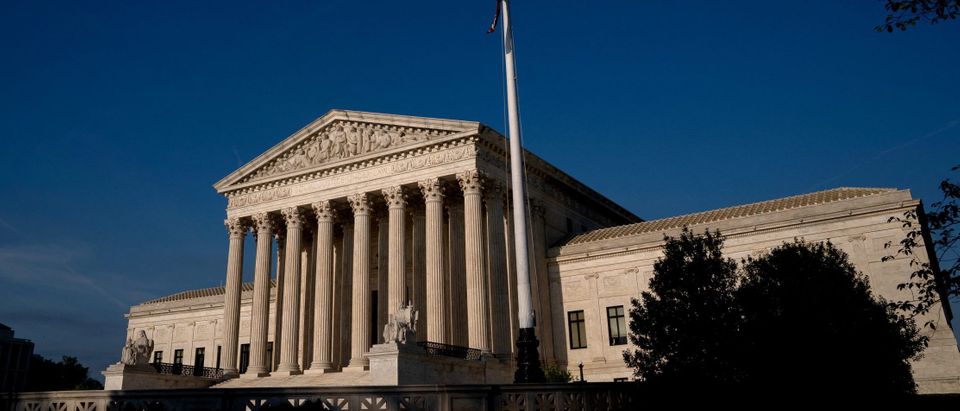The Supreme Court unanimously ruled Monday that Boston’s refusal to allow a Christian group to hang its flag in front of the city hall violated the group’s First Amendment liberties.
The case, Shurtleff v. City of Boston, addressed the constitutionality of the city’s denial of the Christian group Camp Constitution’s request to fly a flag with the Latin cross in front of Boston’s city hall during an event, The Hill reported. Harold Shurtleff, the director of Camp Constitution, made the request in 2017, which the commissioner of Boston’s Property Management Department worried at the time could violate the Establishment clause of the Constitution, according to the opinion written by Justice Stephen Breyer.
The Court ruled in a 9-0 decision that the city’s refusal to allow the group to hang its flag violated the group’s right to freedom of speech and its flag-flying program did not express government speech, the opinion said.
The Supreme Court rules that the city of Boston violated the First Amendment when it refused to fly an outside group’s Christian flag in front of city hall (despite flying various other groups’ flags). The decision is unanimous, and it’s the only opinion of the day.
— SCOTUSblog (@SCOTUSblog) May 2, 2022
“Because the flag-raising program did not express government speech, Boston’s refusal to let petitioners fly their flag violated the Free Speech Clause of the First Amendment. When the government does not speak for itself, it may not exclude private speech based on ‘religious viewpoint’; doing so ‘constitutes impermissible viewpoint discrimination.'” Breyer wrote.
Boston’s City Hall Plaza has three flag poles located in front of the building — one flying the American flag and the second with the Commonwealth of Massachusetts banner, the opinion stated. The city has permitted for nearly 50 groups to hang their flag on the third pole for 284 ceremonial events between 2005 and 2017, according to the opinion.
The city had told the public it “sought ‘to accommodate all applicants’ who wished to hold events at Boston’s ‘public forums,'” Breyer wrote. The justices further argued that the hanging of a third party’s flag is private rather than government speech.
“Boston concedes that it denied petitioners’ request out of Establishment Clause concerns, solely because the proposed flag ‘promot[ed] a specific religion.’ In light of the Court’s government-speech holding, Boston’s refusal to allow petitioners to raise their flag because of its religious viewpoint violated the Free Speech Clause.”
In one of the three separate concurring opinions on the matter, Justice Brett Kavanaugh arguing that the equal treatment of religious and secular organizations is not a violation of the Establishment Clause, The Hill reported.
“As this Court has repeatedly made clear, however, a government does not violate the Establishment Clause merely because it treats religious persons, organizations, and speech equally with secular persons, organizations, and speech in public programs, benefits, facilities, and the like,” Kavanaugh wrote. “On the contrary, a government violates the Constitution when (as here) it excludes religious persons, organizations, or speech because of religion from public programs, benefits, facilities, and the like.”


